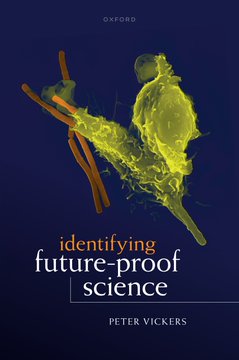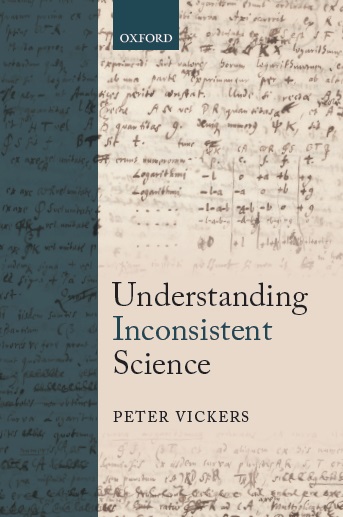Academic
Academic
Here you will find a selection of my academic publications.
Identifying Future-Proof Science (Oxford: Oxford University Press)

My forthcoming book Identifying Future-Proof Science argues that we can confidently identify many scientific claims that are future-proof: they will last forever (so long as science continues). Examples include the evolution of human beings from fish, and the fact that the Milky Way is a spiral galaxy. But how should we go about identifying future-proof science? This appears to be a new question for philosophers of science, and not an unimportant one. It is argued that the best way to identify future-proof science is to avoid any attempt to analyse the relevant first-order scientific evidence, instead focusing purely on second-order evidence. Specifically, a scientific claim is future-proof when the relevant scientific community is large, international, and diverse, and at least 95% of that community would describe the claim as a ‘scientific fact’. In the entire history of science, no claim meeting these criteria has ever been overturned, despite enormous opportunity for that to happen (were it ever going to happen). There are important consequences for school education: If this is indeed the way to identify future-proof science, then the vast majority of school-leavers will have hardly any of the requisite skills, since schools systems around the world completely neglect to teach children how to judge the second-order evidence for scientific claims.
CLICK HERE FOR FULL SYNPOSIS AND CHAPTER SUMMARIES
Chapter 1 ‘What is future-proof science?’ is available to read online here.
See here for my presentation of the book at the Pittsburgh Center for Philosophy of Science.
See here for a presentation on the book at the Durham Book Festival 2021.
Edited volume, published August 2021:

Full details here.

Understanding Inconsistent Science
Oxford: Oxford University Press (2013)
Book reviews
“[T]he book is a remarkable achievement both in its breadth and in its depth. Vickers offers by some margin the most comprehensive and detailed discussion of inconsistency in physics of which I am aware … [T]his is an important book.”
Review in the British Journal for the Philosophy of Science (2016), 67(3), pp. 913-918, by Prof. Mathias Frisch. Full review available here.
“Vickers’ treatment of the examples is detailed and well-referenced, while also being admirably accessible, even for an audience that lacks a full grasp of the science and mathematics involved … the book makes a substantial contribution to the literature: gathering these eight examples together in a well-referenced discussion provides an excellent starting point for anyone interested in thinking about inconsistency in science.”
Review in the Journal for General Philosophy of Science (2015), 46(2), pp. 413-418, by Prof. Bryson Brown. Full review available here.
“Vickers’ book is a highly valuable contribution to the literature on inconsistencies in scientific reasoning and to the philosophy of science in general […] it is safe to say that Vickers’ book is from now on a necessary reference for any scholar of these problem fields.”
Review in International Studies in the Philosophy of Science (2016), 28(3), pp. 325-340, by Dunja Seselja and Christian Strasser. Full review available here.
“Peter Vickers’ monograph stands out as a very serious piece of scholarship in historically-and scientifically-informed philosophy of science. It is to be strongly recommended to both philosophers (of science) and reflectively inclined scientists, especially physicists and mathematicians.”
Review in Notre Dame Philosophical Reviews, 9th March 2014, by Prof. Sorin Bangu. Full review available here.
“The method is original and convincing, and thecase studies well researched and compelling […] this is a very creative text, and useful for both those directly interested in the inconsistency debates and also those looking for a novel approach to solving other problems in philosophy of science.”
Review in Metascience 24(1), pp. 49-53, by Associate Prof. Mark Newman. Full review available here.
“The cases themselves are fascinating, and Vickers’ treatment is systematic, detailed, and rigorous. […] Understanding Inconsistent Science [is] a book that I warmly recommend.”
Review in Mind 124(496), pp. 1398-1401, by Prof. Tom Nickles. Full review available here.
Academic articles
(Just a selection)
- (2020): ‘Expecting the Unexpected in the Search for Extraterrestrial Life’, International Journal of Astrobiology.
- (2020): ‘Disarming the Ultimate Historical Challenge to Scientific Realism‘, British Journal for the Philosophy of Science 71(3), pp. 987-1012.
- (2019): ‘Towards a Realistic Success-to-Truth Inference for Scientific Realism’, Synthese 196(2), pp. 571-585. This paper is featured on a Synthese ‘Philosopher’s Walk’.
- (2017, with Henry Taylor): ‘Conceptual Fragmentation and the Rise of Eliminativism’, European Journal for Philosophy of Science 7(1), pp. 17-40.
- (2017): ‘Understanding the Selective Realist Defence Against the PMI’, Synthese194(9), pp. 3221-3232.
- (2016): ‘Why Kirchhoff’s Approximation Works’, in K. Hentschel and N. Y. Zhu (eds.) Gustav Robert Kirchhoff’s Treatise “On the Theory of Light Rays” (1882), World Scientific.
- (2014): ‘Scientific Theory Eliminativism’, Erkenntnis 79(1): pp. 111-126.
- (2013): ‘A Confrontation of Convergent Realism’, Philosophy of Science 80(2): pp.189-211.
- (2012): ‘Historical Magic in Old Quantum Theory?’, European Journal for Philosophy of Science 2(1): pp. 1-19.
- (2011, with Steven French): ‘Are There No Things That Are Scientific Theories?’, British Journal for the Philosophy of Science 62(4): pp. 771-804.
- (2011, with Juha Saatsi): ‘Miraculous Success? Inconsistency and Untruth in Kirchhoff’s Diffraction Theory’, British Journal for the Philosophy of Science 62(1): pp. 29-46.
- (2009): ‘Was Newtonian Cosmology Really Inconsistent?’, Studies in History and Philosophy of Modern Physics 40(3): pp. 197-208.
- (2008): ‘Frisch, Muller, and Belot on an Inconsistency in Classical Electrodynamics’, British Journal for the Philosophy of Science 59(4): pp.767-792.
